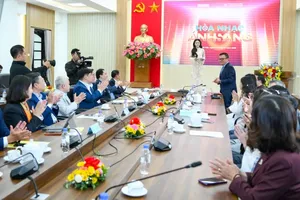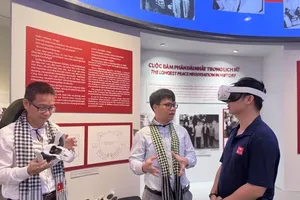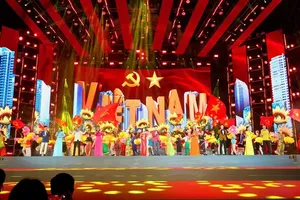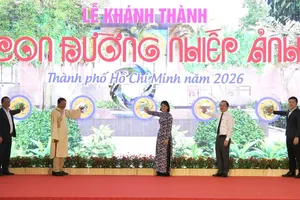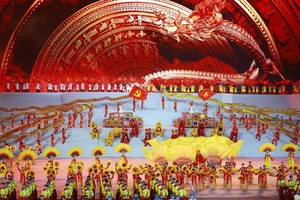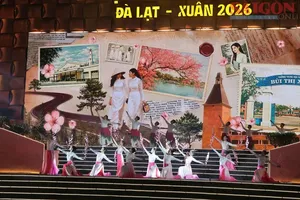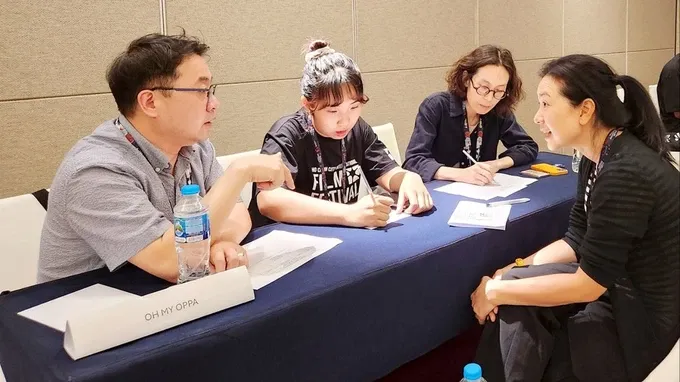
“The spirit of a film city is the availability to offer logistics support to filmmakers, who are then free to apply their creativity in film content”, shared famous Japanese director Hirokazu Kore-eda at the HCMC International Film Festival (HIFF) 2024.
Obviously, the role of the State as well as specific policies of each locality is the key to facilitating the development of the film industry. With the goal to become a film city and a member in the UNESCO Creative Cities Network (UCCN), HCMC particularly pays attention to policy making in this matter. It has launched the project ‘Developing the Cultural Industry in HCMC until 2030’ with clear visions and strategic aims for each period.
Moreover, the HCMC People’s Council has introduced several resolutions with the same aim, such as Resolution 181/ NQ-HDND on December 8, 2023 about a list of projects to call for investments under the public-private partnership method, including 23 projects in the culture-sports fields; Resolution 16/2023/NQ-HDND on September 19, 2023 about the minimum total investment scale of projects under the public-private partnership method; Resolution 12/2023/NQ-HDND on September 19, 2023 about the content and rewards for contests, festivals, and professional literature composition competitions.
Turning to the downside, as there are both subjective disadvantages (cinematographers, lighting and sound technicians) and objective ones (equipment and facilities), the Vietnamese cinema has not been able to keep up with the world. In HCMC, there is also a serious shortage in human resources, especially high-level ones, in the film industry. What is more, the State’s investment in film infrastructure, technologies, production, and distribution is rather limited and inconsistent, thus cannot achieve the expected goals.
In order for the film industry in HCMC, and the whole country in general, to match its potentials, it is necessary to create close connections among relevant units and form a network to join the international one. Film producer Tran Thi Bich Ngoc, in charge of the ‘Project Market’ in HIFF 2024, commented that it is vital to make global filmmakers realize the potentials of Vietnam via its capable and talented human resources, strong logistics. Only then can these filmmakers turn to Vietnam for cooperation opportunities.
Director Charlie Nguyen agreed with this stance, saying that the key to achieving the above ambition is to have a consistent and healthy cinema ecosystem in the country. The most important factor seems to be human resources, especially in script writing.
Dr. Truong Minh Huy Vu stressed on the necessity to train capable human resources in the film industry, ranging from script writers, directors, actors and actresses to film businesspeople. These professional people are able to help the national cinema industry to compete with the global one.
The essential role of human resources training has been reflected in the project ‘Developing the Cultural Industry in HCMC until 2030’, along with a sensible proposal of issuing policies to attract more talents in the cultural industry to improve the overall quality.
"HCMC’s cultural industry will bloom vibrantly to match its international counterparts as long as suitable mechanisms are adopted. The cinema must become a key factor in the cultural industry, contributing to raising the public’s awareness and boosting the growth of tourism. I hope that HCMC is able to properly invest in this field and develop appropriate mechanisms for its film industry to go global and attract more filmmakers in the world to the city”, said Prof. Dr. Trinh Quang Phu – Head of the Oriental Research Development Institute (ORDI).


